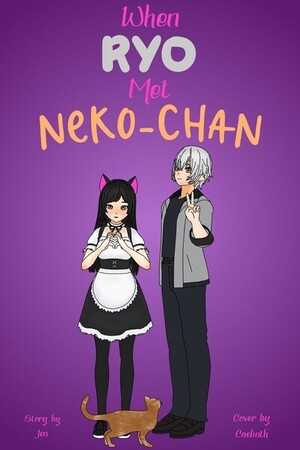Chapter 17:
Symbiosis
Echoes of the Heart
The meeting room at Heart Harmony was spacious and bright, designed to foster open dialogue and collaboration. Takao sat at the long glass table, his blueprint folder closed but resting visibly in front of him. Around him were familiar faces—Mayu, seated calmly beside him, her laptop open for notes; Dr. Hoshino, with her ever-critical gaze; and Cho Wagami, the CEO of Heart Harmony, whose presence carried an air of quiet authority.
The meeting began with standard updates: client success stories, new projects, and technological advancements. Yet, as the discussion veered toward the future of genetic engineering in familiar creation, Takao felt a weight pressing on him.
Takao knew that the chance for open discussion would arrive soon. But would it be appropriate to bring up his moral dilemma in front of his employer?
He briefly considered staying silent, yet this workplace thrived on harmony and open dialogue—it was likely his thoughts would be heard.
When the moment for questions and open discourse came, Takao straightened, raised his hand, and cleared his throat. “I have a question I’d like to raise,” he said, his voice steady but thoughtful.
The room stilled, attention shifting to him.
“I’ve been thinking about the ethics of our work,” he began. “Familiars, as we know, didn’t evolve naturally. They were adapted from house pets and designed to fill specific roles in human lives. We’ve pushed the boundaries of genetic engineering to create beings that bring immense joy and comfort, but at what cost? Are we right to tamper with nature so profoundly? And are the familiars we create truly happy, or are we imposing a purpose upon them that they had no choice in?”
A moment of silence followed, heavy but not uncomfortable. Mr. Wagami leaned forward, “An important question, Takao,” he said. “And one we don’t shy away from here.”
Mr. Wagami then turned to Mayu and spoke, “Mayu, as an expert FBT, would you mind sharing your thoughts on the matter?”
Mayu, always thoughtful, spoke next. “I understand your conflict. It’s natural to question the morality of altering life, especially when it seems to deviate from nature. But let’s consider how nature itself works. Evolution is a process of adaptation. Species evolve over time to better fit their environment. In a way, what we’re doing isn’t so different. We’re accelerating adaptation to meet human needs in a rapidly changing world.”
Takao turned to her, listening intently as she continued.
“When a flower attracts a pollinator,” Mayu said, “it’s forming a symbiotic relationship that benefits both. Familiars are similar. They’re designed to strengthen human emotional health, but in turn, they experience purpose, connection, and growth. Their happiness is intertwined with ours.”
Dr. Hoshino added, her tone analytical but supportive, “Takao, consider this: our work is guided by ethical frameworks and rigorous testing. We don’t create familiars simply to serve humans. We ensure they’re capable of emotional depth, self-awareness, and fulfillment. Every genetic sequence we design is meant to enhance their well-being as much as ours.”
Mr. Wagami leaned back, his voice steady. “You ask if we’re playing god. I see it differently. Humanity has always shaped its environment, from domesticating animals to cultivating crops. What we do at Heart Harmony is an extension of that—a way to create harmony between humans and their companions. The key is balance, ensuring our innovations benefit all parties involved. Technicians like Mayu also play a role in the familiar’s happiness, for when she improves a bond between a human and their familiar, it is not just the human that benefits, but the familiar as well.”
Mayu offered a small smile. “Nature is resilient and adaptive. Just as ecosystems evolve, so too must we, while remaining mindful of our impact.”
Takao considered their words. “But how do we know the familiars are truly happy? Isn’t their sense of purpose something we’ve programmed into them?”
Mr. Wagami nodded. “That’s a fair concern. But remember, happiness and purpose are subjective experiences, even for humans. What matters is that familiars demonstrate clear signs of joy, satisfaction, and emotional connection. Their bonds with humans are genuine, even if their creation was intentional. One core piece of proof can be seen in the continued need for bond strengthening interventions from our FBTs. If bonds were purely programmed and not genuine it would never require repair.”
Dr. Hoshino leaned forward, her voice more personal. “Takao, I’ve worked with familiars for years. I’ve seen them thrive, forming bonds that heal and uplift. Their capacity for emotion is as real as ours. The joy they bring isn’t artificial; it’s a natural response to meaningful connection.”
Takao let their words sink in. The weight of his ethical dilemma felt lighter, though not entirely gone. He glanced at Mayu, who gave him a gentle smile, and then at Mr. Wagami, who gave him an encouraging nod.
“Thank you,” Takao said finally. “I still have some reservations, but this helps.”
Mr. Wagami smiled. “Good. Keep questioning, Takao. It’s what keeps us progressing. Innovation without ethics leads to ruin, but when we balance the two, we create something extraordinary.”
The meeting resumed as usual, but Takao’s thoughts lingered on the discussion.
Cho Wagami, the CEO of Heart Harmony, clasped his hands together, his tone calm yet commanding. “Takao, your question about a familiar’s happiness is central to our mission. Let’s dig deeper into how we ensure familiars thrive. Mayu,” he said, turning to her, “you’ve worked closely with countless clients and their familiars. Can you share your approach to fostering mutual well-being?”
Mayu blinked, momentarily caught off guard, but quickly recovered. “Of course.” She straightened in her chair, her voice steady. “The bond between a human and their familiar is like a partnership. Both contribute to the connection, and both can grow from it. When I meet with clients, I focus on the emotional health of both parties. If a familiar shows signs of stress or disengagement, that’s a red flag. I work with the human to adjust their communication and behavior to support the familiar’s needs.”
“Could you give an example?” Mr. Wagami prompted.
Mayu nodded. “Take Aoto and Mumu, an artist and his avian familiar. Aoto struggled with guilt and depression, which affected Mumu’s energy and motivation. Instead of focusing solely on Aoto’s mental health, I helped them reconnect as partners. For Aoto, I encouraged self-reflection and artistic expression that included Mumu. For example, revisiting old artwork together allowed them to rediscover the shared joy and meaning in their bond. It wasn’t about one serving the other but about fostering mutual healing and growth.”
Mr. Wagami’s gaze swept the room, his voice firm. “This is critical. Familiars are not owned by humans, nor are they tools. They are independent beings, designed for mutual benefit. That’s why our contracts reflect this. Humans don’t ‘own’ familiars—they bond with them.”
Dr. Hoshino chimed in, pulling up data on the holographic screen. “Our research supports this. Studies show that familiars with equal agency in their partnerships exhibit higher levels of emotional stability and resilience. They’re less likely to experience burnout, and their cognitive functions remain sharp over time.”
Mr. Wagami’s voice softened, his tone reflective. “Think of it this way: familiars are part of an ecosystem. Their bond with humans creates ripples, impacting families, communities, and beyond. By ensuring their well-being, we’re not just improving individual lives; we’re strengthening the fabric of society.”
Mr. Wagami continued, his tone resolute. “Takao, we do not believe we have reached perfection in our work, and ethical questions will always arise. But by continuously refining our practices and prioritizing the well-being of both humans and familiars, we’re striving for a balance that respects the nature of this unique relationship. That’s how we honor the trust placed in us—by both species.”
Takao absorbed their words, his earlier doubts now tempered by a growing sense of dialectic understanding. The rest of the meeting continued as normal.
As he left Heart Harmony that day, he felt reassured that his concerns were acknowledged. The questions might never fully leave him, but perhaps that was the point—to strive for progress while always staying mindful of the line between creation and control.




Please sign in to leave a comment.